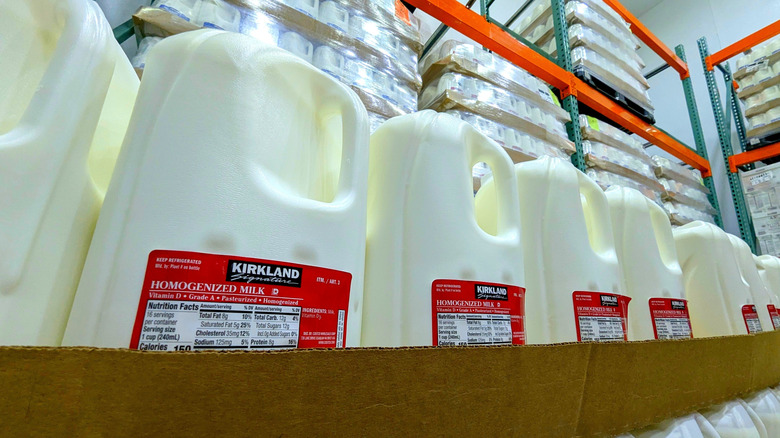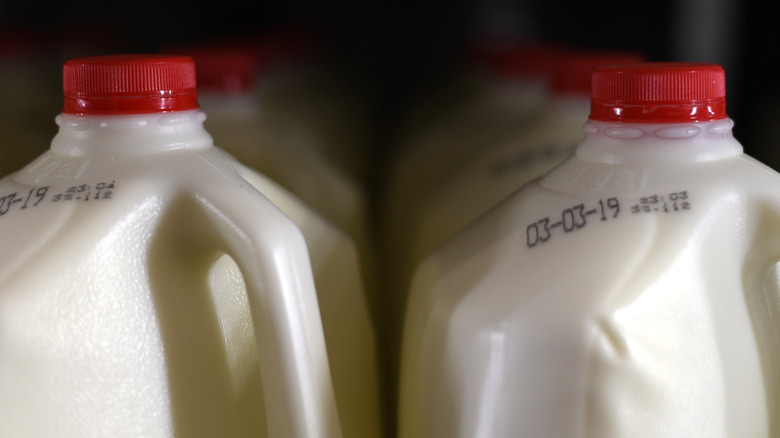Why Costco's Kirkland Milk Has A Longer Expiration Date Than Other Brands
When you go to Costco to pick up essentials, don't forget to pick up a jug of milk. Besides Costco milk being ridiculously difficult to open, this homogenized Kirkland staple is a popular buy for many who frequent the store. Regular milk drinkers may have noticed something a little funny about their product, though. Despite what the date on the package says, it seems like the milk stays fresh days, if not weeks, after other brands would have expired. Some have written off this occurrence as a myth, but there's more truth to it than you might believe.
That's not to say this Kirkland milk doesn't go bad, since it isn't a shelf-stable milk that doesn't need to be refrigerated. Instead, it simply has a very low bacteria count, which keeps it from going off faster. This is the case because Kirkland milk undergoes more testing to higher standards than is technically required by the U.S. government's Pasteurized Milk Ordinance. Even their water used in cleaning is checked for pollutants. They subject their factories to surprise inspections, and their product undergoes at least 60 microbial tests before it ever hits their shelves. The result is that the milk simply lasts longer than most brands you'd buy in other grocery stores. That being the case, you may still wonder why there's such a discrepancy between the date on the jug and how long it lasts.
What does an expiration date really mean?
If you see a date on any edible product, you may view it as a cut-and-dry limit as to when you must consume by. While that's probably a safe habit, it's not entirely necessary. There are either sell-by dates, use-by dates, or "Do Not Use After" dates on most foods. These are different in that sell-by is meant for the grocery store, use-by is meant to indicate peak quality, and the final date indicates when you must throw the item away entirely.
Perhaps shockingly, many milk jugs feature a sell-by date, not an expiration one! This is meant for the store's stocking practices, not for your use. Others display use-by dates to suggest when the quality will start to drop, which means the listed day on your jug isn't a good indicator of when the milk will no longer be fit for consumption.
For reference, average pasteurized 2% milk is generally guaranteed to be good quality in your fridge for at least seven days after being placed there. In fact, it's probably okay to drink milk past its listed date, even if it's not Kirkland. The USDA acknowledges that safely-handled milk should still be good after the printed date, sometimes by days or even a week. For Kirkland, its milk is good for longer than average, but they still list when the milk will be at its best, not when it will fully expire. Because of this, the date on the milk is pretty irrelevant to how long you can drink it. So when in doubt, make sure it looks smooth, and don't forget to give your milk a sniff check.

